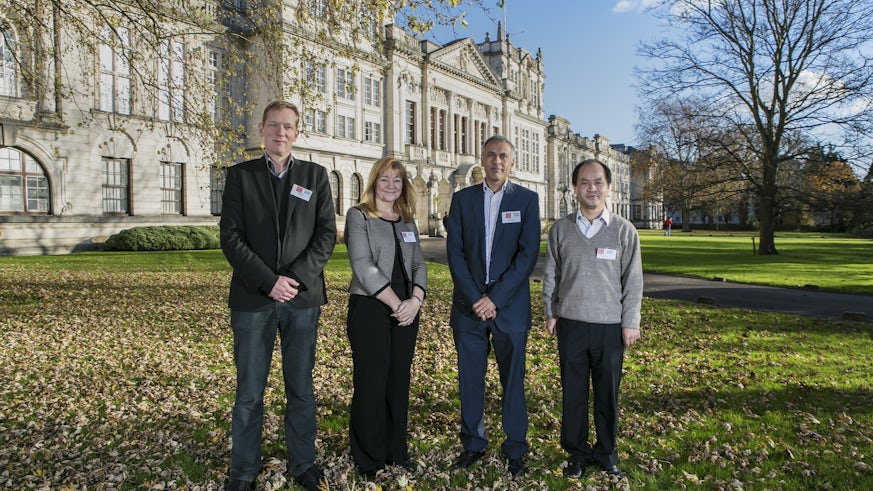Engineers aim to develop EU ‘super grid’ for sharing wind power
8 December 2014

Researchers at Cardiff University are working on technology which will contribute to the development of a 'super- grid' for sharing renewable power across Europe.
The team hopes to unlock ways of bringing renewable energy into homes and businesses, cutting down on fossil fuels.
Working with Leuven University (KU Leuven) in Belgium, the MEDOW project is investigating ways of sharing offshore wind power via a grid system.
Professor Nick Jenkins, Leader of Energy at Cardiff School of Engineering, said: "Wind power is a source of clean, renewable electricity. We need to make more of it to become less reliant on expensive imported fossil fuels. In 2012, over half of the energy that the EU consumed was imported from outside the Union."
MEDOW is working to develop a direct current or DC grid – a more efficient way of transmitting and sharing power. A pan-European grid, rather than single point-to-point connections, will reinforce reliability and help balance power supply and demand.
Academic and research management staff from Cardiff and KU Leuven met in Cardiff for a Vision2020 Policy Hub Event. Vision2020 is a collaboration platform for research organisations and companies participating in the 'Horizon 2020' EU funding programme.
One of the main items on the agenda is Cardiff's co-ordination of the Vision2020 Energy Cluster. It is anticipated that the work of the Cluster will facilitate further energy-related research collaborations between the two institutions, allowing them to access increased funding from the EU.
The idea of a European renewables power grid is backed by the environmental charity Greenpeace.
Professor Jenkins added: "New wind farms are likely to be placed offshore, where wind speeds are higher and turbines less intrusive. As offshore wind power is generated a long way from where it is used, we need to find better ways of transporting the power to the onshore grid. Increasing our use of wind power will also support the future electrification of heating and transport, which could make a big difference to carbon emissions and reliance on fuel imports."
MEDOW (Multi-terminal DC Grid for Offshore Wind) is a Marie Curie Initial Training Network funded by the European Commission and is coordinated by Cardiff University's School of Engineering. The team is working with five universities and six industrial organisations with expertise in the manufacturing, design, and operation of multi-terminal DC grids.
The Cardiff team hope their research will form the basis of a pan-European electricity transmission network to deliver a single European electricity market, develop sustainable energy technology and create jobs.
Professor Jenkins added: "Energy affects nearly every aspect of our lives and so finding ways of ensuring a cleaner, affordable and more secure energy supply is not an ideal: it's essential."
MEDOW's international partners include Universitat Politècnica de Catalunya (Spain); Danmarks Tekniske Universitet (Denmark) and China Electric Power Research Institute (China).
Dr Jun Liang, Cardiff School of Engineering and Principal Investigator of MEDOW, said: "Thanks to collaboration with other partner universities, including KU Leuven, regular technical discussions have inspired our ideas. We've been able to introduce each other to our industrial partners which broaden the vision of our research and help share the outcomes."
Whilst searching for a grid solution, the project is helping to train early career researchers and will create a pool of researchers and expertise from academia, research institutes, manufacturers, and operators developing DC grids.